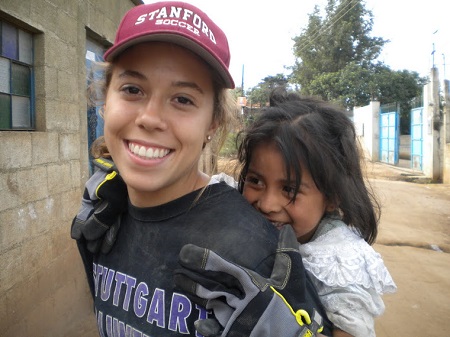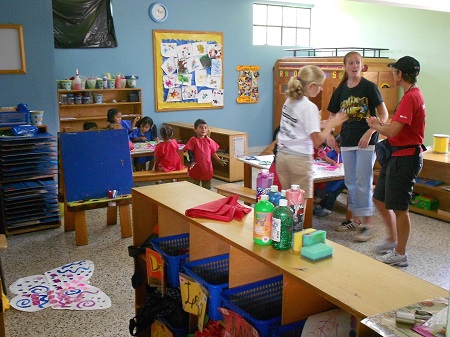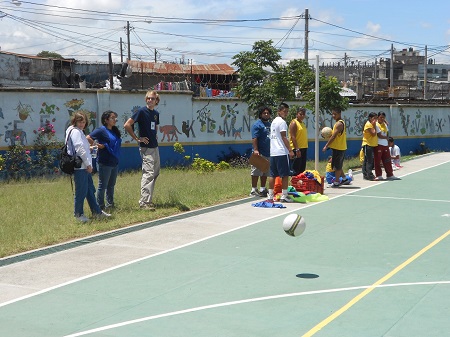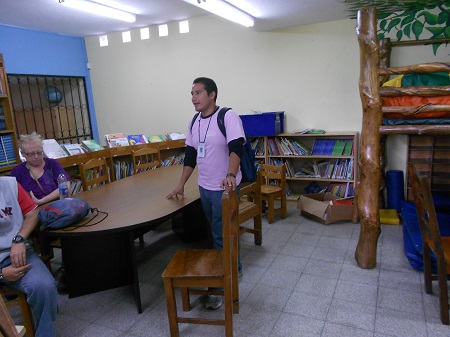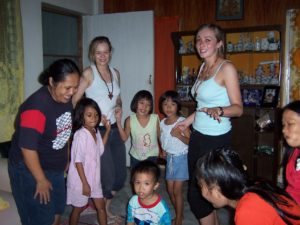
Author: Scott Burke

Learn to Read Chinese Before Teaching in China
The Chinese language and its characters can seem so mystifying to us outsiders. But when you become a volunteer teacher in China, you can have a better experience if you can learn to read Chinese — at least some of the most common Chinese characters. Continue Reading →
“Viral Bhaidiyo” Music Video in Nepal
Volunteering in Nepal has many benefits of course. Including exposing you to Nepali pop culture!
The music video “Viral Bhaidiyo” is THE latest viral hit in Nepal. Produced by Sabin Karki, the video is cute and catchy. Continue Reading →
Kenya Airways Begins First Direct Flights to USA
Kenya Airways is making it even easier to volunteer in Kenya.
In 2018 Kenya Airways is beginning daily direct flights from Kenya to the United States after years of being blocked by U.S. authorities over security concerns. Continue Reading →
Delhi World Book Fair 2018
If you are volunteering in India now and looking for a fun event during your free time this week:
The New Delhi World Book Fair 2018 is running from January 6-14 at Pragati Maidan, New Delhi.
Held for the past 45 years, the New Delhi World Book Fair 2018 is a major calendar event in the publishing world. Continue Reading →
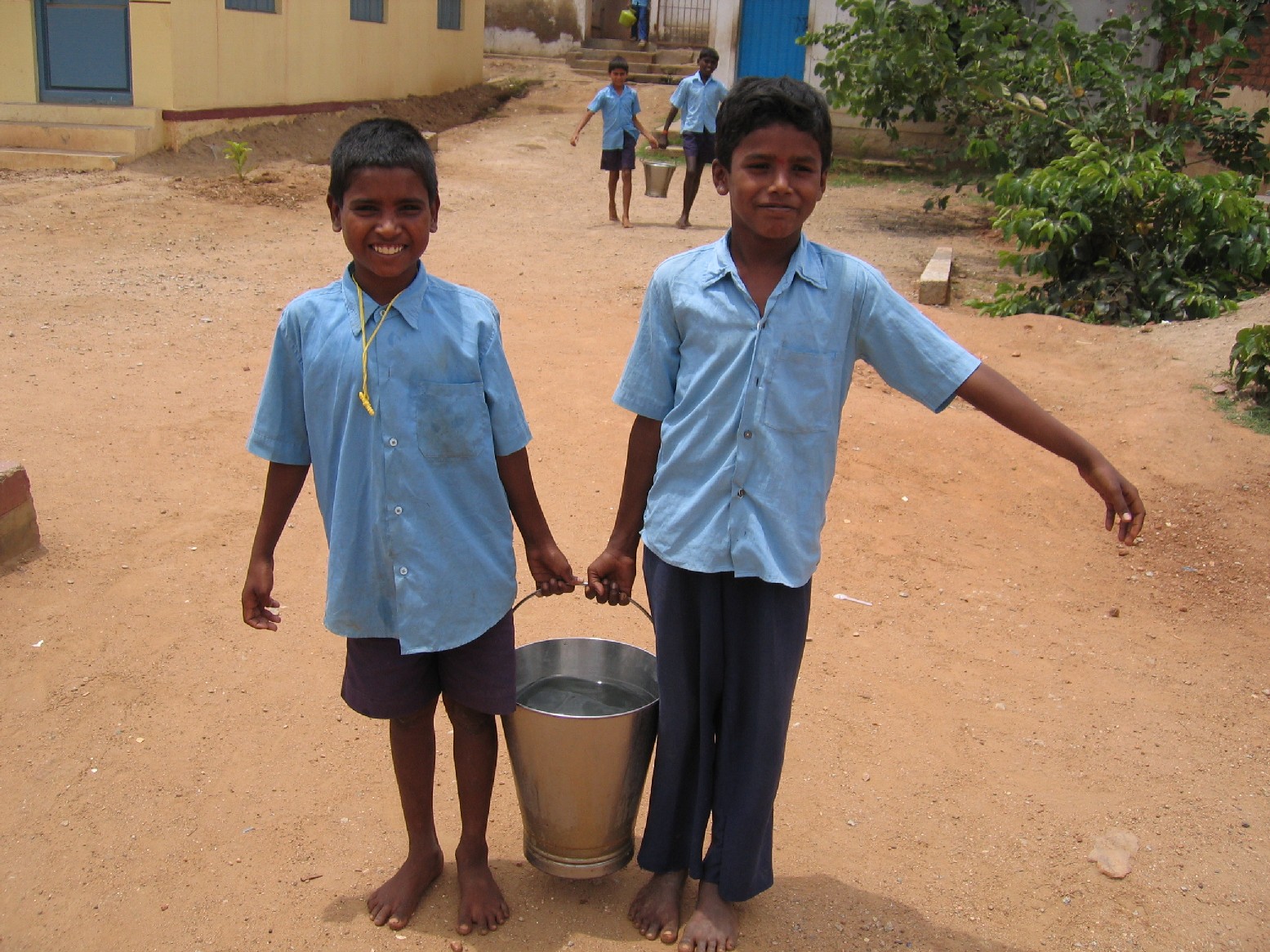
Getting Punched in the Mouth Abroad
The boxer Mike Tyson famously said that “Everyone has a plan until they get punched in the mouth.”
Hopefully you won’t have to take a punch on your volunteering trip abroad.
But don’t be surprised if you find yourself struggling to reconcile your pre-trip expectations with the reality you experience on the ground.
In Delhi once, I asked a teen volunteer what her number one piece of advice would be for future volunteers. She said, “Prepare to be unprepared!”.
Before she left her parents’ home in the UK to volunteer in India, she felt she had prepared well. She talked to former volunteers, read countless books and websites, and watched videos.
Then she arrived in Delhi — and it felt like she “hadn’t prepared at all.”
It’s almost a guarantee — in your early moments in the host country, you’ll quickly forget all of the reasons you went there in the first place (to help others, have an adventure, build your resume etc.)
On my first volunteering trip abroad to Nepal, my own expectations for my trip were rattled before I even left the runway in New York!
On your own trip overseas, the sense of reality differing from your expectations may take different forms:
- The insane traffic, dust and noise out on the street
- The strange customs and food at your host family
- The disorganized nature of the volunteer work
The question is, how will you react when your expectations are crushed – when you get “punched in the mouth” abroad?
I believe that the way you answer this question is the key to your having a “successful” trip.
Some of the typical bad “answers” I’ve seen from volunteers include:
- Getting depressed and withdrawing to one’s room
- Asking mom and dad to intervene
- Commiserating (& partying too much) with other foreigners
Fortunately though, most of the volunteers in my programs over the years have reacted positively to their expectations while abroad.
How?
First, take a look at this short video I shot in Ocean City, New Jersey.
That’s Bailee, my parents’ dog, running around the beach. A hunting dog chasing sea birds along the water’s edge. Totally in the moment, no past, no future; dealing only with what’s in front of her (or above in the case of the birds!).
Now, I read recently that some scientists say that it’s impossible for humans to “live in the moment.”. That our brains are simply wired to always think about other things — including the past and future — no matter what we’re doing.
Still, I believe there are some strategies and techniques you can try while abroad, in order to stay-in-the-moment like that energetic dog above:
1. Lose your expectations. Walk off that plane in the host country with zero expectations. Deal only with what’s in front of you – the people, places and situations. Don’t compare any of them to home.
2. Breathe. Take 6 to 10 deep, slow breaths per minute for 10 minutes each day. You’ll get an immediate reduction in stress (with a lower heart rate and blood pressure).
3. Yoga. Ever met a stressed-out yogi? Didn’t think so! (here’s the yoga DVD I’ve been doing for years).
4. “THE”. Stop the runaway thoughts in your mind by saying the word “The” out-loud. It should jolt your brain back to what’s in front of you. (“Serenity Now” can work too!)
5. Smile. Studies have shown that forcing a smile decreases stress.
On a less existential level, try to be the practical person who’s helpful, instead of a lump who sits around complaining:
- See that shy kid in the corner at the orphanage? Go read a book to her.
- That nurse who needs assistance with a patient? Offer to help her.
- Your host family’s neighbor have no food today? Buy them a bag of rice.
To me, those are the actions of volunteers who know what it means to live in the moment abroad, without worrying about their expectations for their volunteer trip abroad.

The Ultimate Guide for Homeward Bound Travelers
Native Foreigner has an ebook called “The Ultimate Guide for Homeward Bound Travelers“.
Native Foreigner says, “This comprehensive booklet includes information on steps you should take immediately upon your return home as well as provides advice for ways you can go abroad in the future.”
We also advise our volunteers on returning home from volunteering abroad, but The Ultimate Guide for Homeward Bound Travelers is more thorough.
This ebook includes the following:
- Advice from Clinical Psychologist Dr. Stephanie Law on how to cope with reverse culture shock
- Tips and Tidbits from other travelers on making the adjustment easier
- Career advice from a Fortune 500 Human Resources Executive Vice President, Tom Traub, on how to promote international experiences during the job hunt
- In-depth advice on future international opportunities, including teaching and volunteering abroad
- Links to helpful articles and websites

Spanish Classes in Quetzaltenango, Guatemala
The above is a video of one of our group Spanish classes today in Quetzeltenango, Guatemala.
Normally our students’ Spanish classes are one-on-one, but occasionally the teachers get everyone together for a group activity. The Spanish lesson in the Guatemala video below involved a card game to help the students with vocabulary.
Remember, all of our volunteering programs in Guatemala include ten (10) hours of one-on-one Spanish lessons. You can do the lessons either in the morning or afternoon.
Most volunteer work takes place in mornings, so the Spanish lessons typically take place in the afternoons (after lunch at the host families).
Our Spanish classes in Quetzeltenango, Guatemala take place at the la cafetera.net coffee shop at 15 Av 8 Calle 13-77 Zona 1 in Quetzeltenango. They have a beautiful rooftop terrace with views of the city and surrounding mountains and volcanoes.
Volunteer Teaching in Tamil Nadu, India
One of our volunteer teaching placements in India is the Sri Ramana Matriculation School in Tamil Nadu. The school was founded in 1988 with only six children. Today the school has more than 350 students ranging from 4 to 16 years of age. In addition to receiving an excellent education, students learn to become responsible and morally honorable young adults.
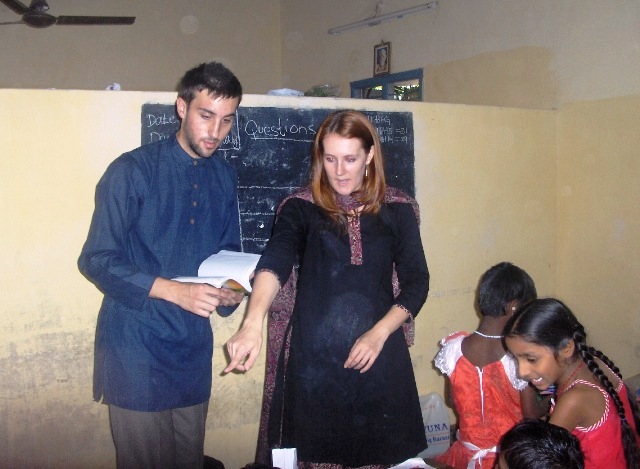
Each of the science, mathematics, computer science, social studies, moral science and geography curriculums are taught in English. Students also receive instruction in their native language, Siddha (traditional herbal medical treatment), dance, yoga and music. The school provides students with books, school uniforms, daily lunch and transportation.
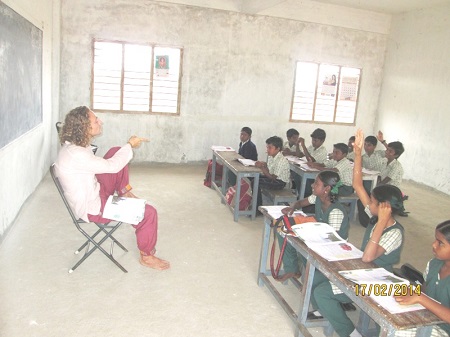
A recent newsletter from school Director M. Karunanithi says,
The recent volunteers were very well attached with the children and teachers. On Monday morning, they came to the school and said goodbye to the children, teachers and to me. They were very hard to leave from us and shed their tears. And they assured that they would come back in the next year and do the volunteer service for long time. We appreciate their service and also we are very much grateful to them.
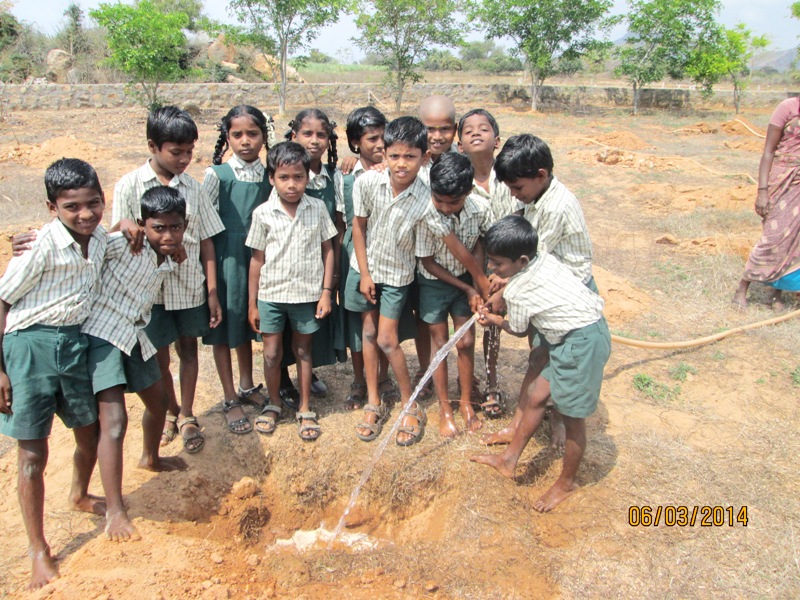
As a volunteer teacher you can assist with English and writing, math, science, music, geography, art, yoga and dance. The teaching curriculum for each major subject is based on the students’ standard book. Volunteers are also encouraged to create their own lesson plans. Depending on the subject, volunteers can bring along teaching materials such as picture books, instruments, flash cards, art supplies, and songs.
The minimum stay for this program is four weeks. Your start date would be either September 1 or or January 1. We encourage you to arrive one week before the start of school, so that you can acclimate to the culture, climate and time zone before you start working with the students.
Safe Passage for our Volunteers in Guatemala
We send our volunteers in Guatemala on a one-day tour of the non-profit Safe Passage’s programs in Guatemala City. The tour leaves from the city of Antigua, one of the cities where our programs are based, and takes volunteers by minivan to Guatemala City.
Included in the tour is a view of the trash dump near the public cemetery as well as visits to their Early Childhood Education Center, Educational Reinforcement Center, and Adult Literacy Program. We also have our volunteers visit with the children in the program for lunch in the Main Building.
In 1999, Hanley Denning founded Safe Passage in a tiny dilapidated church at the edge of the Guatemala City garbage dump and dedicated her life to empowering this community through education. Throughout 2014, Safe Passage is commemorating their 15th anniversary and looking back at the progress made over 15 years of service and dedication to Hanley’s dream.
Our volunteers in Guatemala spend over 30 hours per week either building houses or working at an orphanage; with the latter program their activities include arts and crafts, reading books, playing games and sports, light cleanup work, and generally being a caring presence for the children.
A typical orphanage in Guatemala has 15-20 children, ranging in age from 3-12. We also sometimes conduct physical improvements of the children’s shelters, including our volunteers paint the buildings, weed fields, and clean up rubbish and debris.
For accommodations, volunteers stay with local host families in Guatemala who provide you with your bedroom, all meals, WIFI and include you in the family dynamic. These families are known to us personally and have been specifically trained on hosting foreign volunteers. The host families are all within minutes walking distance of each other. Bedrooms are same-gender only. A typical host family hosts 4-8 volunteers with two per bedroom.

